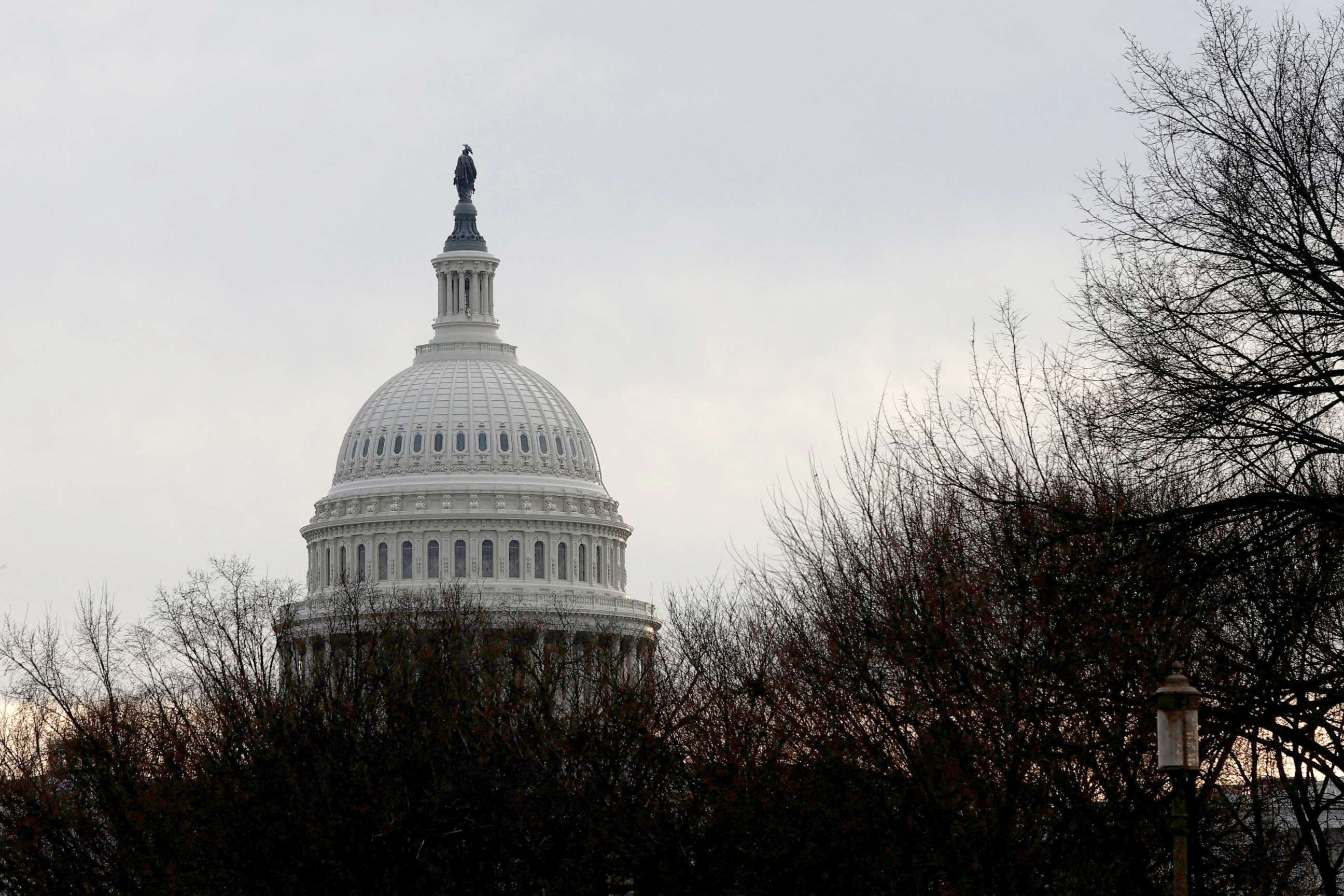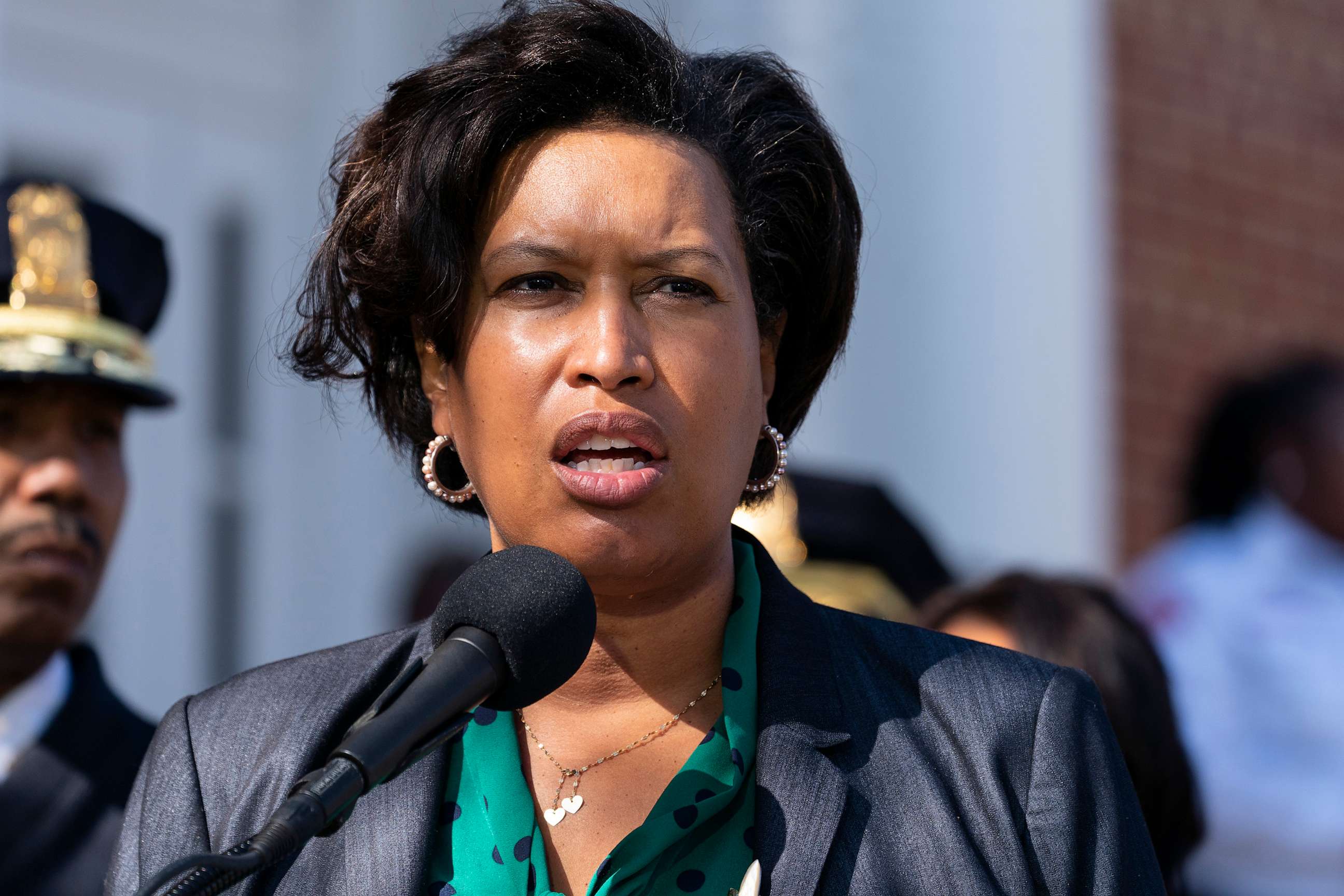House votes to block 2 DC bills, drawing some local outrage and calls for statehood
The move is "emblematic" of the issue the district faces, one lawmaker said.
After months of contention which began shortly after the midterm elections, the House, led by the Republican majority, voted Thursday to prevent a pair of local Washington, D.C., bills from going into effect.
One of the bills would allow non-U.S. citizens to vote in local elections. The other, more controversial bill would update Washington's criminal code for the first time since 1901.
House Speaker Kevin McCarthy urged all of his colleagues to approve resolutions disapproving of the two measures.
"Under the Constitution, Congress -- not the city council -- has the final say over the laws governing the nation's capital," McCarthy said in remarks on the floor. "We have a responsibility to hold Washington, D.C., accountable and stop the new criminal code from taking effect."
The move is a defeat for local officials who, shortly after the midterm elections, called on the Republican-led House to give the city sovereignty and not to meddle in their laws.
But the district's lack of statehood has consistently made it a target of some Republican lawmakers. Congress has ultimate jurisdiction over the district.
"I think these resolutions are emblematic of why D.C. needs statehood," Del. Eleanor Holmes Norton, the district's non-voting representative, told ABC News.
Despite the Democratic Party's general support for statehood, 42 Democrats joined Republicans to reject D.C. legislation allowing non-citizen voting and 31 Democrats voted to reject the city's new criminal code.
The resolutions blocking the legislation now head to the Senate, where they need a simple majority vote to pass and go to President Joe Biden's desk.

The Biden administration said in a statement Monday that the White House opposed both resolutions, describing them as "clear examples of how the District of Columbia continues to be denied true self-governance and why it deserves statehood."
"That gives me some hope that this will not pass and this will not become law," Norton said.
However, the administration's statement did not explicitly say whether Biden would veto the resolutions if they came to his desk.
Controversy over D.C.'s new criminal code
The so-called crime bill, which has been worked on for more than 16 years by local officials and was unanimously passed by the city council last year, has come under fire from some lawmakers and activists in D.C. -- including Mayor Muriel Bowser, a Democrat.
Bowser publicly opposed the legislation, citing concern that the new requirement for jury trials for misdemeanor offenses would cause the courts to be overburdened. She also took issue with the reduction of penalties for certain crimes.
After much public discourse, Bowser vetoed the bill, but her decision was overridden by the city council.
Despite Bowser's opposition to parts of the criminal code, the mayor slammed the action taken by the U.S. House on Thursday.
"We know that the Congress, especially the Republicans, will attack largely social things or they will try to do things in the district that they can't do at home to score points, and so I think that's what you're seeing in this debate today," she said.

D.C. Attorney General Brian Schwab similarly accused House Republicans of "political grandstanding." Schwab earlier this week wrote a letter to Speaker McCarthy urging him not to take up the issue.
"Today's move to overturn our laws is not about making the District safer or more just … District residents are on notice that lawmakers seek to undermine our democratic process to gain political favor and are substituting uninformed politics for the views of those impacted most, DC residents," Schwab wrote.
House Oversight Chair James Comer, R-Ky., told fellow lawmakers that the new code would turn "this crime crisis into a catastrophe."
Del. Norton, in turn, noted to her colleagues that the new law would toughen some sentencing in the district. The maximum punishment for charges such as attempted murder increased to 23.5 years from five years. Attempted sexual assault, which currently has a five-year maximum sentence, now would be punished by up to 15 years.
Where statehood stands
Josh Burch, the founder of the advocacy group Neighbors for D.C. Statehood, told ABC News that he was "disgusted but not surprised" by Thursday's action.
The resolutions, Burch said, were "a fulfillment of the promises that [some Republicans] already were making before the election to attack" the district's autonomy under the 1973 Home Rule Act.
Sen. Tom Carper, D-Del., recently reintroduced legislation to make Washington, D.C., the 51st state. Norton has introduced a statehood bill in the lower chamber, which twice passed her proposal when it was under Democratic control.
Bowser said Thursday that they "will continue the fight" for statehood. But with a Republican-led House, neither measure is likely to make it to Biden's desk.
"In some ways, the next two years are going to be a little bit of a defensive, being on defense against any democratic aggressions led by House Republicans. But we also need to use those opportunities to highlight just how undemocratic it is," Burch said.




